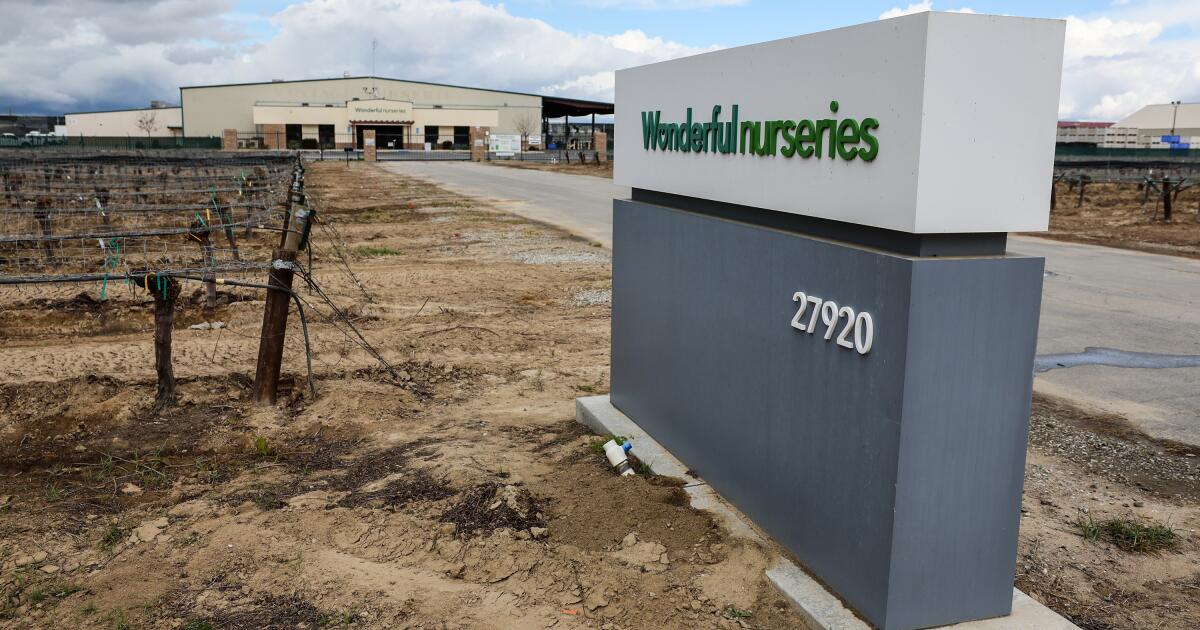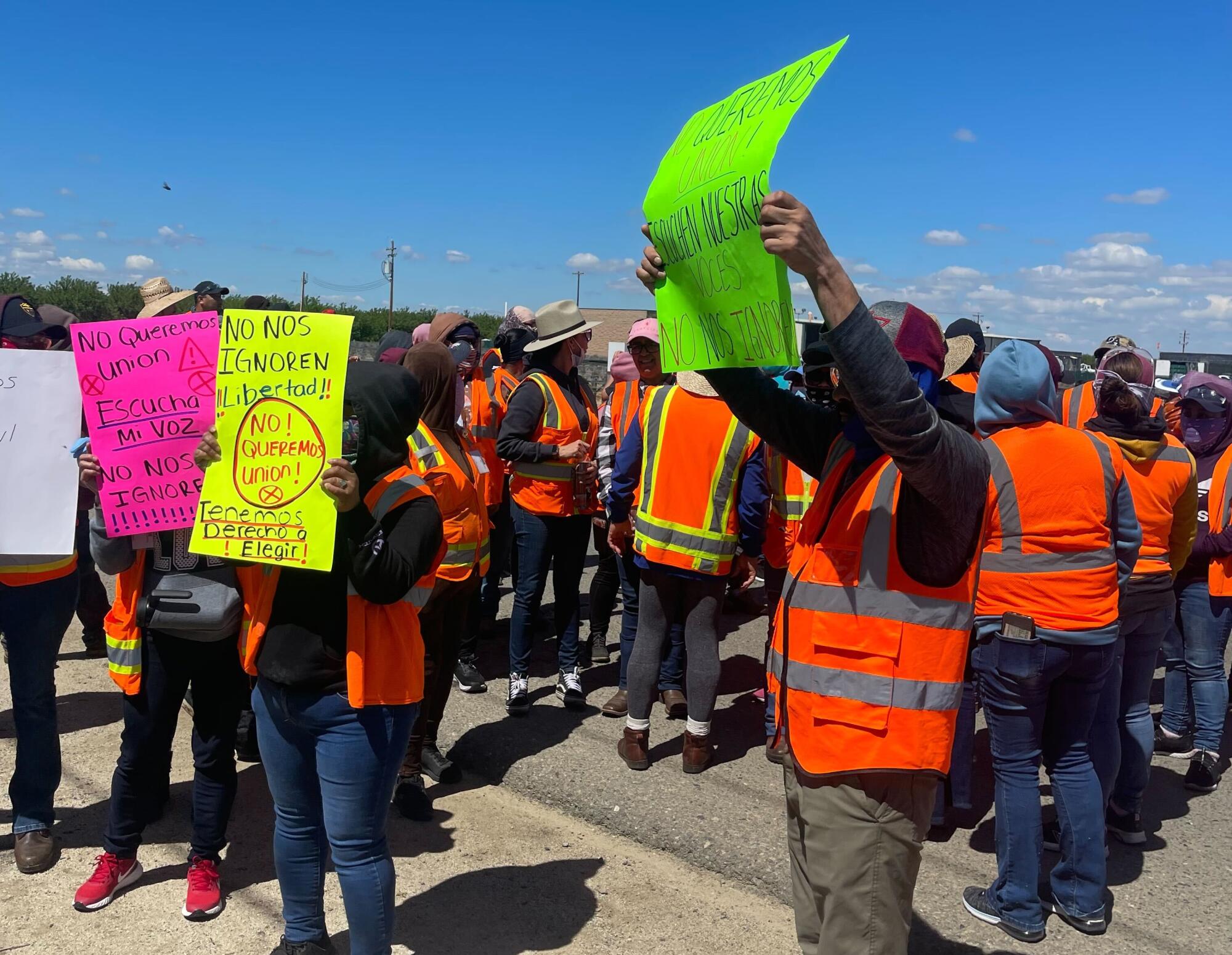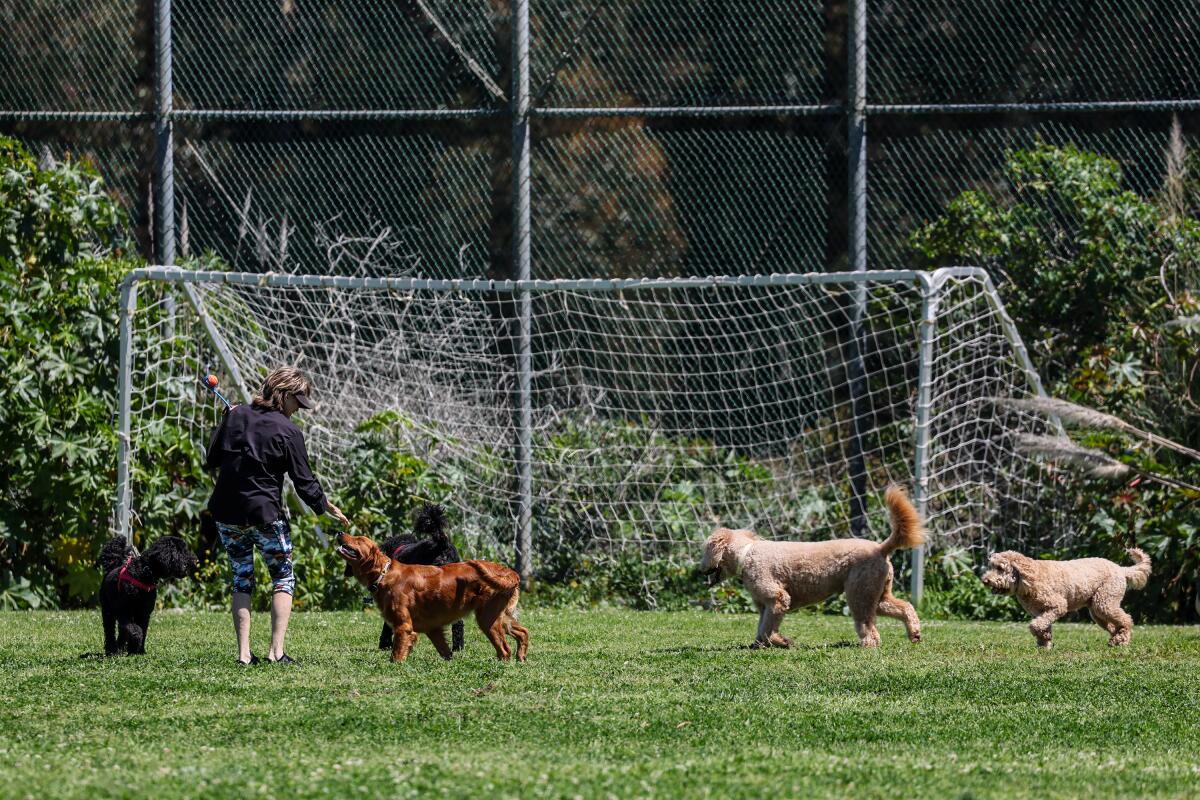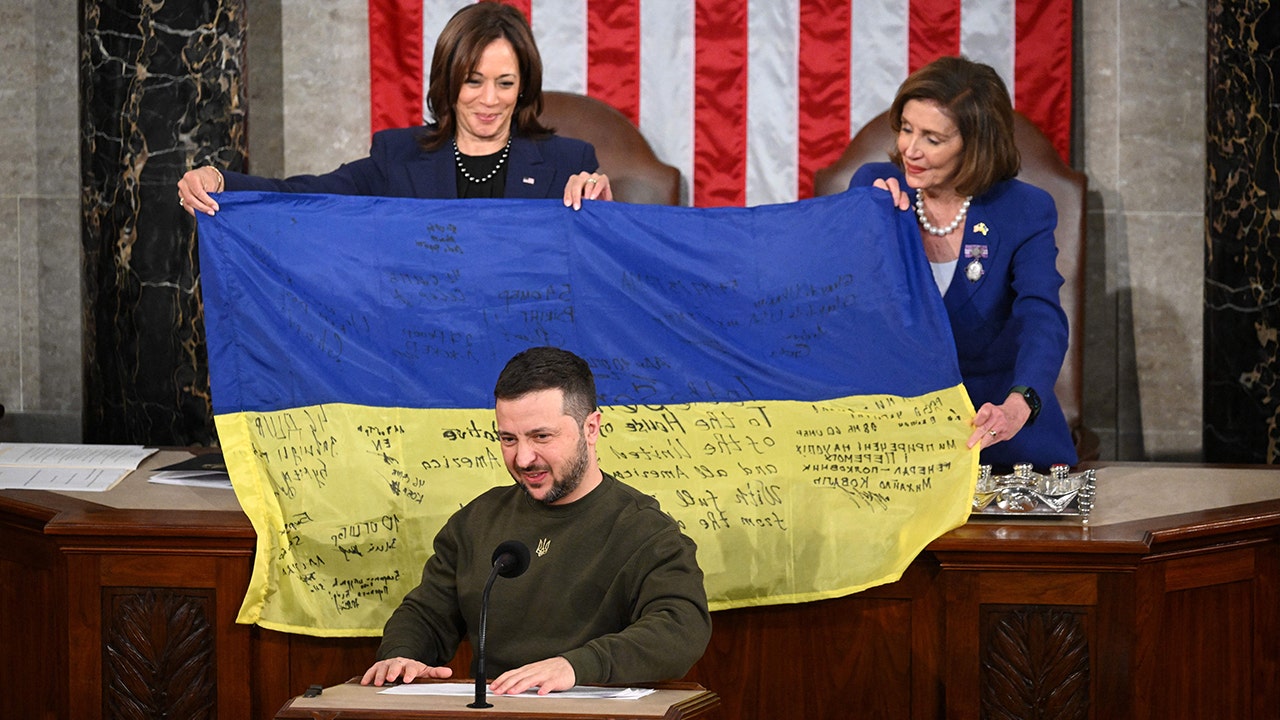Business
Medieval Times union efforts collapse as American Guild of Variety Artists pulls support

A beleaguered union effort among show performers and stable hands at Medieval Times’ Buena Park castle has met its end.
The American Guild of Variety Artists, the union backing workers who organized in Buena Park as well as at another location of the popular themed dinner theater in New Jersey, submitted paperwork pulling its support.
The move came after actors in both locations backed petitions asking the National Labor Relations Board to hold elections to remove the AGVA as their union representative. They filed their petitions to decertify the union with free legal assistance from the National Right to Work Foundation, a conservative, anti-union group, which hailed the union’s withdrawal as a victory.
“AGVA union officials treated each Medieval Times castle as their own personal fiefdom, but their actions led to an uprising of the rank-and-file they purported to ‘represent,’” National Right to Work Foundation President Mark Mix said.
AGVA said in an emailed statement that over the course of contract negotiations, a large number of the Medieval Times personnel who had voted to be represented by the union left Medieval Times, making it difficult for the union to continue its role.
“Without the original support we started with, combined with circumstances beyond our control, it became impossible to continue,” the union said, noting that the effort began two years ago at the Lyndhurst, N.J., location and nearly two years ago in Buena Park. “It is with a heavy heart for those seeking industry standard working conditions and wages, that we have sent a letter of disinterest.”
The two Medieval Times dinner theaters were part of a wave of organizing in recent years at workplaces not traditionally represented by unions, such as strippers at a North Hollywood bar and baristas at Starbucks locations.
Workers involved in the union allege they were subject to intimidation and retaliation from managers during their nine-month strike last year, as well as in recent months, forcing many to decide to leave the company and shrinking the pool of workers supportive of the union.
Medieval Times did not respond to a request for comment.
Erin Zapcic, who plays a queen at the Buena Park castle and served as a union steward, said that in recent months, Medieval Times unlawfully switched workers’ shifts and subjected them to backbreaking menial work — for example, shoveling horse manure for hours at a time.
“Medieval Times has operated as a king lording over his kingdom for its entire 40 years of business. It has never been accountable to anyone, and used a lot of intimidation to make people fall in line,” Zapcic said.
Of some 27 employees who returned to work in November after the strike, fewer than five remain employed at Medieval Times, she said.
Zapcic said that during the strike, Medieval Times went on a hiring spree to replace striking workers and keep the shows going, and it is largely those new hires who supported the petitions to decertify the union.
“I’m heartbroken. I put every ounce of myself, every bit of passion and energy for the last two years into this fight,” she said. “We really just wanted to have a voice in the workplace.”
“The union is pretty much dead in the water at this point,” said William Hainsworth, 55, a former cast manager at the Buena Park castle, who was fired from Medieval Times about a year ago and alleges in a pending lawsuit that he was wrongfully terminated for being vocal in his support for the union.
“I regret nothing,” Hainsworth said. “There’s a lot of shady stuff going on there.”
Buena Park Medieval Times workers voted to unionize in November 2022, citing low wages and a desire to improve working conditions, including better treatment of animals involved in the show.
In February of last year, workers went on strike when negotiations over wages during contract talks were unsuccessful.
While on strike, workers said they experienced union-busting tactics by the company and violence on the picket line from patrons, and the workers filed multiple unfair labor practice complaints with the National Labor Relations Board.
Lawmakers called out Medieval Times for the alleged union busting, with New Jersey Democratic Sens. Bob Menendez and Cory Booker sending a letter last May urging the company’s chief executive, Perico Montaner, to cease union busting activities and negotiate in good faith with workers in California and New Jersey. But negotiations continued to stall.
In November, Buena Park castle workers returned to work, ending their nine-month strike without a contract agreement.
When they returned to work, Medieval Times refused to reinstate three of the striking workers, accusing them of “misconduct while on strike,” according to the union. Among those workers was Jake Bowman, a knight and vocal union activist who had leveled allegations of horse abuse at the castle.
The union at the time called the company’s decision “blatant, illegal retaliation.”

Business
99 Cents Only to close all 371 stores and wind down its business

99 Cents Only Stores will close all 371 of its stores and wind down its business operations after more than four decades, the City of Commerce discount chain announced Thursday.
“This was an extremely difficult decision and is not the outcome we expected or hoped to achieve,” interim Chief Executive Mike Simoncic said in a statement. “Unfortunately, the last several years have presented significant and lasting challenges in the retail environment.”
He cited multiple factors, including the “unprecedented impact” of the COVID-19 pandemic, shifting consumer demand, persistent inflationary pressures and rising levels of shrink — an industry term that refers to loss of inventory attributed to reasons such as shoplifting, employee theft and administrative errors.
Combined, those issues “have greatly hindered the company’s ability to operate,” Simoncic said.
99 Cents Only has stores in California, Arizona, Nevada and Texas and has about 14,000 employees. The privately held company said it had reached an agreement with Hilco Global to liquidate all of its merchandise and dispose of fixtures, furnishings and equipment at its stores. Sales are expected to begin Friday.
Hilco Real Estate is managing the sale of the company’s real estate assets, which are owned or leased.
The announcement by 99 Cents Only reflects a larger weakness in the dollar-store category, said Brad Thomas, equity research analyst at KeyBanc Capital Markets.
Dollar Tree, a Chesapeake, Va., retailer, announced last month that it was closing 600 of its Family Dollar stores this year and an additional 370 in the next few years, he noted.
“It’s been trying times for many, many retailers,” he said. “What’s interesting is that what started out as a boon to retailers in the pandemic, with all those stimulus checks, quickly turned into a very troublesome time.”
Rising wages, inflation and higher losses due to shrinkage have reduced profits for retailers in a deep-discount sector where margins are already extremely low.
99 Cents Only, with its large base of California stores, has been under particular wage pressure, he said. And it’s at a disadvantage compared with larger chains such as market leader Dollar General, which has a store count close to 20,000 — “a sales base and a store base that is multiple times larger than 99 Cents,” Thomas said.
Customers make their way through the crowded parking lot at a 99 Cents Only store in Santa Monica on Friday. The chain has locations in California, Arizona, Nevada and Texas and employs about 14,000 people.
(Genaro Molina / Los Angeles Times)
Last week, Bloomberg reported that 99 Cents Only was considering a bankruptcy filing as it contended with a liquidity shortfall.
Founded in Los Angeles in 1982 by David Gold, 99 Cents Only popularized the single-price retail concept. At the time, dollar stores were seen as dumping grounds for undesirable products, but the Gold family made the stores bright and well-organized, with good-quality merchandise including groceries and household supplies.
“It was an instant success,” Howard Gold, one of David Gold’s sons, recalled Friday; he and his three siblings all worked at 99 Cents Only. “People thought it was government-subsidized because they couldn’t believe the prices.”
For years, it remained one of the few true “dollar” stores, with items priced at 99 cents or less or grouped to sell for a total of 99 cents.
That changed in 2008 when, faced with fast-rising inflation, soaring food and fuel prices, and a higher minimum wage, 99 Cents Only announced that it was straying from its long-standing price strategy.
Three years later, the company announced that it had agreed to be sold in a deal valued at about $1.6 billion, as investors eyed dollar stores that had grown in popularity during the Great Recession. In 2013, Howard Gold and the rest of the family management team departed the company.
Today, with stores scattered around Los Angeles County — among them in Hollywood, Silver Lake, Mid-Wilshire, Santa Monica, Thai Town, North Hollywood and Glendale — the closure of 99 Cents Only will leave a number of large vacant properties in prime locations.

A 99 Cents Only store in Huntington Beach on Friday.
(Allen J. Schaben / Los Angeles Times)
“It’s very sad on many levels, and I’ll just leave it at that,” Gold, now retired and living in Studio City, said of the decision to close the chain his father built.
Other major retailers have also announced store closures in the region lately, including REI in Santa Monica, Macy’s in Simi Valley and several Rite Aid locations.
99 Cents Only did not respond to requests for comment.
Nicolas Kolesnikow, a retired teacher who lives in Westchester, said he was shocked to hear the chain was going out of business. He shops at a 99 Cents Only about four blocks from his house several times a week.
“It’s almost like a corner store for me,” said Kolesnikow, 82.
He might stop by and pick up milk if he runs out, and for longer trips will buy household items and produce such as tomatoes, cucumbers and cilantro before visiting a traditional supermarket with a larger selection.
Kolesnikow said he noticed that some products had become much more expensive in the last year, though there were still bargains.
“I found their prices were working their way up to regular prices,” he said, “and there were fewer shoppers.”
Business
California’s wealthiest farm family — and scores of their workers — accuse UFW of bait and trick

The revelation that United Farm Workers would be representing workers at a Kern County company owned by the state’s wealthiest farming family should have been a triumphant moment for the storied union co-founded by Cesar Chavez and Dolores Huerta.
Following decades of diminishing membership in the vast stretches of California’s farm fields, the UFW had seized on a new way to unionize workers, made possible by recent state legislation. Rather than hold a formal election at a company job site, union leaders had invited employees at Wonderful Nurseries, the nation’s largest grapevine nursery, to off-site meetings where they were instructed in how to apply for $600 in federal relief for farmworkers who labored during the pandemic, as well as encouraged to sign cards authorizing the UFW to represent them at Wonderful.
Labor experts say the outcome of the UFW-Wonderful skirmish could have outsize ramifications on the future of unionizing farmworkers in California.
(Max Whittaker / For the Times)
The UFW subsequently filed a petition with the Agricultural Labor Relations Board, asserting that a majority of the 600-plus farmworkers at Wonderful Nurseries in Wasco had signed the authorization cards and asking that the UFW be certified as their union representative. It appeared to mark the UFW’s third victorious unionization drive in a matter of months.
But within days, Wonderful — part of the farming empire owned by billionaires Stewart and Lynda Resnick — hit back with an explosive allegation: The company accused the UFW of using the $600 in federal relief as bait to trick farmworkers into signing the authorization cards. And it submitted nearly 150 signed declarations from nursery workers saying they had not understood that by signing the cards they were voting to unionize.

Stewart and Lynda Resnick in a 2016 portrait
(Ryan Miller / Getty Images)
Claudia Chavez, a full-time employee of a labor contractor for Wonderful Nurseries, is among several workers who told The Times that they attended meetings where they understood that the UFW would help them claim the $600. She said she was given a card to sign, but didn’t know that signing it was a vote for the union.
“They said clearly — this I do remember — that it was $600 of aid for farmworkers who worked during COVID,” Chavez, 43, said during an interview outside her Wasco home. “But they never said, ‘If you sign, we’re going to come to your work.’”
Union leaders have stood their ground, alleging that the company intimidated workers into making false statements and brought in a labor consultant with a reputation as a union buster to manipulate worker emotions in the weeks that followed.
Antonio De Loera-Brust, UFW’s communications director, called the allegations that workers were tricked into signing union cards “categorically false.” The union has put forward other workers who said they understood what they were signing and believe that UFW representation would improve their pay and working conditions.
Still, what could have been a David-versus-Goliath tale has become something tangled and far more troubling. The UFW and Wonderful are locked in battle, each employing legal muscle and PR prowess, and will present their cases to the ALRB, the state agency charged with overseeing farm labor disputes and union elections.
Labor experts say the outcome could have outsize ramifications for the future of unionizing farmworkers in California. Though still an influential voice in Democratic leadership circles, UFW has seen its on-the-ground presence and sway plummet from its vibrant heyday in the 1960s and ‘70s. At its peak, UFW had about 80,000 members across hundreds of farms. Today, that number has fallen to about 5,000, with another 2,000 in the Teamsters or United Food and Commercial Workers International unions.
If Wonderful is found to have engaged in unfair labor practices, it could be subject to financial penalties. But if the union is found to have misled workers, it faces a blow to its credibility and its nascent resurgence could be stopped in its tracks.
“One way or another it’s going to have an impact on the ability of farmworkers to organize,” said Gaspar Rivera-Salgado, project director at the UCLA Center for Labor Research and Education. “If the union fails and it’s a setback to the organizing, it’s going to be a long while before they can find a foothold to fight for farmworkers in California.”
The UFW-Wonderful skirmish is in some ways an outgrowth of a longer-running clash between labor leaders and California’s powerful agricultural interests over the UFW’s efforts to streamline the unionization process.
For years, UFW leaders had argued that the process for unionizing work sites was stacked against them. Before the new system went into effect, farmworkers voted for union representation by secret ballot at a dedicated polling event, typically held on company grounds. The UFW contends that left workers vulnerable to employer intimidation.
In 2022, Assembly Bill 2183 sought to allow farmworkers to select labor representation through mail-in ballots or a system known as card check, which allows workers to authorize a union by signing cards off-site rather than voting in-person at a designated polling place.

The UFW organized a 335-mile march to ramp up pressure on Gov. Gavin Newsom to sign legislation that would provide more avenues to authorize union representation at agricultural work sites.
(Hector Amezcua / The Sacramento Bee)
Gov. Gavin Newsom had vetoed a similar bill the previous year, citing concerns specific to the integrity of the mail-in balloting. His team signaled he would also veto AB 2183. But President Biden publicly exhorted Newsom to sign the bill, and the UFW organized a 335-mile march from Delano to Sacramento to ramp up pressure.
Newsom signed the bill, under the condition that it be amended to limit certain aspects. In 2023, the law was amended to remove the mail-in ballot option and cap the number of work sites that could be petitioned through card check to 75. It took effect Jan. 1, 2023, and will sunset in 2028.
Under the new system, a union can seek to organize an agricultural work site without notifying an employer. Once union representatives gather enough authorization cards to constitute what they believe is majority support, the union files a petition with the state labor board and the employer. The ALRB must decide whether there is proof a majority of the bargaining unit employees support forming a union.
But as is playing out in the Wonderful case, that process can be appealed.
From the start, the new system has been shadowed by a lack of specifics on the responsibilities of the union and employers in the card check drive. It has taken the ALRB 10 months to publish proposed regulations for the new law, and growers say they feel they’ve been playing a game with no rules.
UFW’s first certification petition under card check landed in Stanislaus County in September when it sought to represent 250 workers at DMB Packing Corp., also known as DiMare, where it won 51% support. DiMare submitted several objections, including an allegation that the union obtained signatures through “fraud” and “coercion.” The ALRB found the allegations lacked evidence.
Guadalupe Luna, 55, said working conditions at the tomato packing company in Newman were miserable — that they had no health benefits, no paid time off and got paid 77 cents for every bucket of tomatoes collected. Before Luna arrived at the farm about a year ago, he said, he worked on a farm in Firebaugh where the UFW represented workers and they received benefits and better pay.

Though still an influential voice in Democratic leadership circles, the UFW has seen its on-the-ground presence plummet from its vibrant heyday in the 1960s and ‘70s.
(Max Whittaker / For the Times)
Luna, who is on the bargaining committee for the union, said the UFW meetings he attended with co-workers were focused on the benefits of unionizing and did not include conversations about the $600 federal relief payments. “The coworkers I spoke with, we talked and there wasn’t that [confusion].” he said. “We just talked to them and explained the process.”
DMB Packing President Jeff Dolan said the company is appealing the labor board’s decision. Nonetheless, he said, negotiations with the UFW and workers have been “cordial and positive.”
In Fallbrook, 50 miles north of San Diego, the UFW submitted a petition in January to represent more than 70 employees at Olive Hill Greenhouses. According to the ALRB, no objections were filed, and both sides are at the table to negotiate their first contract.
Santiago Hernandez was among those eager to unionize workers at the Fallbrook nursery. He said he told colleagues to talk to a UFW organizer and explain what they wanted out of their jobs and decide if they wanted to support a union.
The first meeting, he said, was about starting a union and they received the authorization cards to consider. He said the last meeting he attended, where people could drop off the cards, also allowed people to sign up for the $600 in relief. He did not hear from colleagues about being tricked, he said, and felt it had been clearly communicated that the two were not linked.
“The union is here to help farmworkers, not to screw with farmworkers,” Hernandez said.
One of the largest employers in the Central Valley, the Wonderful Co. prides itself on its treatment of farmworkers, including paying above minimum wage and extending company benefits — like free use of its health centers and gyms — to full-time employees. Wonderful has also invested millions of dollars in farmworker communities in Kern County, building parks and schools and improving infrastructure.
The Resnicks, owners of FIJI Water, Wonderful Pistachios and POM Wonderful, are major political donors who have contributed more than $220,000 to Newsom’s campaigns alone.
The workers at Wonderful Nurseries’ sprawling complex in Wasco tend to wine and table grapevines and nut tree rootstocks. In both the company and union narratives about the card check episode, the workers have been portrayed as pawns in a much larger game. The divergent narratives offer little room for a middle ground, for example whether there could have been some confusion in the meetings because of a general lack of understanding of the UFW’s role.

One of the largest employers in the Central Valley, the Wonderful Co. has invested millions of dollars in farmworker communities in Kern County.
(Robert Gauthier / Los Angeles Times)
There does seem to be general agreement that the organizing meetings for Wonderful employees incorporated discussion of both the federal relief payments and the unionization drive. The U.S. Department of Agriculture has authorized several organizations to distribute the one-time grants, including the UFW Foundation, which is separate from the labor union.
Rosa Maria Silva de Rodriguez, 40, who has worked at Wonderful Nurseries for five years, said she hosted several of the meetings at her home last year. She said she wants a union because she feels workers are being mistreated. The water provided in 5-gallon coolers was inconsistently refilled and cleaned, she said. She said she’s had uncomfortable situations in which male coworkers made suggestive comments about women and she knew of no avenue for reporting it.
Silva de Rodriguez said it was clear at the meetings that the federal relief money was not tied to signing a union card. The UFW representative “always talked about the rights of workers, what it meant to form a union, to bring in a union, what the union would do,” Silva de Rodriguez said.
Yet other workers interviewed by The Times spoke in equally heartfelt terms about feeling duped.
Maria Pedro, 27, makes $16.30 an hour as a seasonal worker for a labor contractor at Wonderful Nurseries. She likes that the work in the greenhouses is indoors — and therefore dependable, even when it rains.
“Look, I just got home, and I’m clean,” Pedro said on a recent afternoon, as she sat at a table in her work clothes, khaki-colored pants and a black, long-sleeved shirt.

The workers at Wonderful Nurseries’ sprawling complex in Wasco tend to wine and table grapevines and nut tree rootstocks.
(Robert Gauthier / Los Angeles Times)
She described attending a meeting last year at a colleague’s home in Wasco. She said a UFW representative was there to help Pedro and others apply for the $600 federal grant. As a single mother of three, the money would help her pay rent and buy diapers.
Pedro, who emigrated from Guatemala five years ago, said she had never heard of the union. But during the meeting, the rep explained that the organization helps farmworkers assert their rights. Pedro signed several documents. Among them was a white card emblazoned with the union’s eagle logo that reads, in English and Spanish, “I authorize the Union of Farm Workers of America to be my union representative to collectively negotiate an employment contract with my employer to improve my wages, working conditions and benefits.”
The union rep never asked if the workers wanted to join the union and didn’t explain the significance of the cards, Pedro said.
On Feb. 23, the UFW filed a petition with the ALRB to represent Wonderful Nurseries employees. Several workers, including people for and against unionizing, described attending meetings days later, led by an outside consultant, Raul Calvo, who has built a business advising farm companies on how to avoid unionization. The workers said Calvo told them about the union’s entrance into Wonderful Nurseries and that once the contract was ratified, 3% of their paycheck would go toward union dues.
Pedro said it was only then that she realized that, by signing the card, she had voted for the UFW to represent her. “Thanks to him, we understood what was happening, because the union never really explained what they did,” she said.
If her name was on the petition, Pedro said, she wanted it removed and asked Wonderful for help. She was among the workers who signed a declaration.
Silva de Rodriguez, on the other hand, contends Calvo was the first to suggest employees were tricked. She said workers began admitting to supervisors that they had signed the union card and faced pressure to renounce their support. She said she has seen workers who once supported the unionization effort now protest against it.
“It bothers me, but at the same time, it gives me a bit more strength, because I am fighting for something fair, something fair for everyone,” she said.
The union filed a charge against Wonderful Nurseries, alleging the company required workers to attend a “captive audience” meeting to urge employees to reject UFW representation. Wonderful Nurseries maintains it “provided interested employees with factual information about the process and their rights.”
Calvo confirmed to The Times he is working for the company but declined to answer questions about his role.
The ALRB acknowledged receiving worker declarations on March 1 and called the allegations “serious in nature.” Three days later, the regional director of the labor board moved forward to certify the union’s petition, determining the UFW had submitted 327 valid authorization cards from a bargaining unit of 640, establishing majority support.
The dispute crystallized last week when about 100 Wonderful Nurseries workers left work and traveled 60 miles north to the labor board’s Visalia office. They sported the orange safety vests they’re required to wear at work and carried signs reading, “We don’t want a union! Listen to our voices. Don’t ignore us.”
While the company and two participants who spoke with The Times were adamant the demonstration was worker-led, the UFW has filed a charge with the board alleging that Wonderful Nurseries coerced workers into attending.

About 100 employees of Wonderful Nurseries who say the UFW used deceptive tactics in its unionization drive stage a protest at the Agricultural Labor Relations Board in Visalia.
(Courtesy of Claudia Chavez)
Last week, in yet another escalation, a Central Valley law firm that frequently represents the UFW filed charges with the state Civil Rights Department on behalf of seven workers, including Silva de Rodriguez, alleging that Wonderful Nurseries doesn’t provide sexual harassment training, resulting in a “hostile work environment.”
Wonderful fired back, dismissing the charges as “bogus claims.” In a statement, company President Rob Yraceburu said every manager, including those employed through third parties, is in compliance with all mandatory training, and that the company provided the UFW with its employee handbook, which includes its harassment policy, a week before the charges were filed.
“It’s getting harder to keep up with the fire hose of lies the UFW is pushing in their effort to divert attention from their fraudulent conduct in a vote decided by just seven votes, but where more than 150 farmworkers say they were misled,” Yraceburu said.
Wonderful has appealed the UFW certification. The state labor board is expected to meet this month to consider the company’s objections.
This article is part of The Times’ equity reporting initiative, funded by the James Irvine Foundation, exploring the challenges facing low-income workers and the efforts being made to address California’s economic divide.
Business
Bitten by a billionaire's dog? Or a case of extortion? A legal saga from an L.A. dog park

A dog-bites-woman story usually isn’t much of a story at all. But an incident in one of L.A.’s wealthiest enclaves has become something else entirely.
What began in a Brentwood park on a summer day in 2022, when a dog owned by billionaire surgical-device inventor Gary Michelson allegedly bit another pet owner, has turned into dueling lawsuits and an allegation of blackmail.
Michelson claims it’s a simple case of extortion. He says interior designer Sandra Evling tried to force him to pay her $85,000 by threatening to publicly humiliate him and report his dog to authorities, which she claimed would lead to the pet being put down. He filed suit first, seeking damages in excess of $250,000.
From Evling’s perspective, he should have known better. She alleged Michelson, a philanthropist prominent in animal welfare circles, let his dog run free despite knowing it had bitten other animals and one other person — traumatizing her and causing severe injuries, according to a personal injury lawsuit she filed in response seeking unspecified damages.
In a town where the rich have legitimate fears of extortion, is this a case of a person seeking a payday? Or a billionaire using his wealth and legal savvy to protect himself from responsibility for an aggressive animal?
Dr. Gary Michelson at a 2019 gala for his Michelson Found Animals Foundation in Beverly Hills.
(Albert L. Ortega/Getty Images)
Michelson, 75, seems an unlikely antagonist in a dog-bite case. After reaching a $1.35-billion patent dispute settlement with medical device maker Medtronic two decades ago, he has made a name for himself as a philanthropist in animal welfare and other fields.
After Hurricane Katrina in 2005 orphaned more than 100,000 pets, he established the nation’s first free microchip pet registry. He has a standing prize offer of $25 million for the development of a single-dose medication that can permanently and safely sterilize both cats and dogs.
Michelson’s devotion to animal welfare extended to his own pet Blue, a beige-and-white dog with droopy eyes he celebrated on Instagram with the tongue-in-cheek handle @scarypitbully. The page, since taken down, documented the maturation of the American bully XL, the largest of a muscular breed derived from the American pit bull terrier that the United Kennel Club describes as more gentle and playful, making it an excellent family dog.
Michelson and Evling, 37, an immigrant from Sweden, were regulars at Veterans’ Barrington Park. They lived nearby: Evling in an apartment and Michelson in a $24-million mansion.
The incident took place Aug. 9, 2022, just outside a fenced-in dog park on ball fields where owners let their dogs run free.

Dogs tend to play off-leash on a sports field adjacent to the dog park at Veterans’ Barrington Park.
(Robert Gauthier/Los Angeles Times)
Evling, in her lawsuit, said that she was walking with her dog Neo, a tamaskan, when Blue charged her pet, and that she was bitten trying to protect it. She sought treatment that evening at an urgent care clinic complaining of pain in her left hand from a crush injury and an abrasion to her right elbow, according to medical records reviewed by The Times.
An X-ray found no fractures or vascular injuries in her hand, which was put in a finger splint. She was given a tetanus shot and prescribed antibiotics, the records show.
In messages sent to The Times, Michelson said the records are not evidence of dog bites, claiming instead she might have twisted her finger on her dog’s collar and scraped her elbow while falling. He said that afterward he checked on Evling “for days” and offered to pay her medical bills. He said that the calls were cordial and that she “seemed ok.”
Michelson said he also set up a session at his house with celebrity dog trainer Cesar Millan, a longtime friend, to work with Neo and Blue together so that “Sandra could feel comfortable at the dog park with Blue around.”

Gary Michelson’s dog Blue.
(Courtesy of Gary Michelson)
After the session, Michelson said, he and Evling would see each other at Gold’s Gym Venice, where they both brought their service-dog pets. He said that “things were always quite friendly” and that Evling never complained of being bitten until she learned of his wealth.
Attorney Benjamin Taylor, who represents Evling in the extortion lawsuit, said Evling knew Michelson’s background “well before this incident.”
On April 20, 2023, eight months after the alleged attack, Evling texted Michelson asking to meet the next day at the gym, according to a copy of the pair’s text string provided by former Los Angeles County Dist. Atty. Steve Cooley, a friend of Michelson’s who is listed as one of his attorneys in the extortion lawsuit.
Their conversation continued via texts. Evling complained she was suffering from “severe PTSD” and a lifelong scar from the attack, and chastised Michelson about another alleged incident at the park involving Blue.
“When I was told that you had taken Blue off leash at the park this week and that he had attacked another dog all my trauma came back (like it happened all over again) and a severe anger that you’re not taking this problem seriously. Is it going to take someone getting killed before you realize how serious this is?” she texted. (Michelson denied Blue ever attacked another dog or person in answers to a list of questions sent to Cooley in February.)
Evling, who had stated she didn’t want to involve attorneys, laid out two options.
If Michelson chose Option A, she would have him and his dog expelled from the gym, file a report with police and animal control that would result in the dog being put down, and file a class-action lawsuit with other parkgoers that “will cost you a loooot of money.”
If Michelson chose Option B, Evling texted, he could keep Blue as long as he paid her $85,000, kept his dog on a leash and didn’t bring it to the park. She promised not to file a complaint with the gym so long as Michelson kept Blue away from her while she was training. She added she would sign a nondisclosure agreement that would be voided only if Blue attacked her or her dog again, not if Blue was aggressive with others.
“It is time for you take responsibility and suffer the consequences of your actions,” she texted.
Several days later, Michelson asked Evling how she arrived at the compensation figure and how he and his wife, recording artist Alya Michelson, could trust that she wouldn’t carry out her threats anyway.
Evling said she had consulted with several law firms and claimed the $85,000 would be less than a court judgment. She assured him she wouldn’t talk to anyone or file legal action. “I AM a person of my word and just want to move on as much as you do and leave this in the past,” she texted on April 27.
The negotiations then turned sour. Michelson told Evling he had just learned from several dog park friends that she was recruiting plaintiffs for a lawsuit, accusing her of “already breaking your promise.” However, he said he was immediately sending a “good faith” payment of $10,000 if she would not take the steps she had outlined. “Hopefully, this small measure of restraint will be acceptable to you,” he texted.
Evling disputed that she was preparing a lawsuit, contending she had only learned of the new alleged attack through a dog park chat group.
After being assured the $10,000 was a partial payment, Evling said she would not take further action as long as she received a contract by May 15 for the remainder of the $85,000. Michelson filed his extortion lawsuit days later on May 3.
Taylor said Evling had sought payment to resolve the matter informally without attorneys in the hopes of avoiding a “spectacle.” “Now that Dr. Michelson decided to sue her first, she looks forward to her day in court,” he said.
Attorney Ryan Baker, a founding partner of L.A. law firm Waymaker, reviewed the exchange to offer an opinion on whether it amounted to civil extortion, which under California law includes receiving a benefit such as money through the threatened exposure of any “disgrace or crime” even if falsely alleged.
Baker said that Evling had the right to pursue a private settlement under the threat of her own lawsuit, but if she threatened to report Michelson unless he met her demands she crossed a “bright line.” “She can’t become her own private judge, jury and executioner,” he said.
Michelson was “extremely shrewd,” he said, to seek the demands in writing and send the $10,000, since receiving it would be a key element of civil extortion.
Baker said a “critical question” a jury would have to decide was whether Evling had extorted the money or had simply received and kept it.
After Evling was sued, she filed a personal injury lawsuit that claimed Blue had bitten four dogs and one person in 2022 before the attack on her, and one poodle afterward.
Her lawsuit provided few details about the other alleged attacks. Blue, though, was a topic of a dog park group chat on April 17, 2023 — the day of the alleged poodle attack. Multiple members of the chat alleged that Michelson brought his dog to the park and that his dog had repeated altercations with other animals.
Michelson denied Blue has a history of aggression, contending “chat rooms are not acceptable or reliable sources of factual information,” in response to the questions sent Cooley. He said that Evling’s characterization of his pet, which is referred to as a “vicious animal” in her lawsuit, “reeks of outdated stereotypes.”
Michelson pointed to a lack of complaints with Los Angeles Animal Services as evidence, which the department confirmed in February in response to a California Public Records Act request.
Judie Mancuso, the founder of Social Compassion in Legislation, a public policy group that advocates for animals in Sacramento, said Blue was “super well behaved” at a fundraiser Michelson and his wife hosted for the nonprofit in July at the couple’s Brentwood home.
“The dog didn’t even bark at anyone,” Mancuso said.
At the time of the dog park incident, neither of their dogs were neutered. Michelson said in a text this was to allow Blue to compete as a purebred show dog. He said he opted to have Blue neutered last month because of the difficulty of participating in competition with a dog whose breed is not recognized by the American Kennel Club. “As I am a champion for S&N [spay and neuter], I gave up and had him neutered,” he texted.
Evling’s dog was 8 months old at the time. He has since been neutered, according to Taylor.
In support of her allegations that Blue was aggressive, Evling collected the names and numbers of some two dozen people she alleged had witnessed attacks, including 12 chat group members, whose identities were disclosed in court filings. The Times attempted to contact all of them; most did not respond or would not comment publicly.
Syed Ahmed, a Brentwood data analyst, was an exception. He said that his dog Turbo, a male 70-pound Doberman pinscher, and Blue got into a fight in March 2022 and that Michelson’s dog “ended up grabbing my dog by the throat.” Evling’s lawsuit alleged a dog of that name was bitten that month.
Turbo was treated for puncture wounds, according to a veterinary bill provided to The Times, along with photos of the bite wound.
Ahmed said he didn’t ask Michelson to reimburse him for his $908.10 bill. Michelson “was very apologetic, and that’s why I didn’t pursue anything. I was like, OK, you know, s— happens,” he said.
After Michelson learned from The Times last month that the dog had been injured, he reimbursed Ahmed for his veterinary bill.
Michelson said that he believed Turbo just wanted to play, but that Blue bit the dog because he had been attacked several times by other male dogs. “Blue misread the dog’s intent and reacted to protect himself. I was very upset that it happened,” he emailed. “I will testify under oath that I have never seen Blue attack anyone, ever.”
Michelson’s and Evling’s lawsuits are wending their way through Superior Court. Trial dates for each have been set for next year.
In early December, Evling saw Westside plastic and reconstructive surgeon Michael Zarrabi to examine the scar allegedly left by the dog bite on her right elbow. Zarrabi called the injury “disfiguring” and recommended surgery, multiple laser treatments and topical ointments that he anticipated would improve the appearance 80%, according to medical records reviewed by The Times. The estimated cost: $41,900.
Michelson, in a text, called the estimate “beyond absurd.” He said in an email that he consulted a “well-regarded” Beverly Hills plastic surgeon who, after seeing pictures of the abrasion, said the scar tissue could be removed for $5,000 — half the $10,000 he had already sent her.
As the two parties await trial, Evling has started a business selling Swedish cookies, while Michelson has remained active in civic and philanthropic circles. He rubbed elbows with Gov. Gavin Newsom at an event announcing UCLA’s acquisition of the former Westside Pavilion mall, which the university is converting into a research park. It will house the California Institute for Immunology and Immunotherapy, which Michelson chairs and has pledged $120 million toward.
One place he apparently has not been in a long while is the Barrington dog park.
After the alleged poodle attack, Michelson texted Evling that he was never going to the dog park again and “it is my intention to stay as far away from you as possible.”
Taylor said she had stopped going there too.
-

 Kentucky1 week ago
Kentucky1 week agoKentucky first lady visits Fort Knox schools in honor of Month of the Military Child
-

 World1 week ago
World1 week agoEU leaders weigh Lebanon partnership in response to Middle East crisis
-

 Politics1 week ago
Politics1 week agoFormer Wisconsin Democratic Rep. Peter Barca launches congressional comeback bid
-

 World1 week ago
World1 week agoIsraeli attack on nuclear sites to prompt tit-for-tat, pursuing nukes: Iran
-

 News1 week ago
News1 week agoProsecutors say Trump violated gag order 7 times: Live updates
-

 World1 week ago
World1 week agoIranian media says three drones downed after explosions heard in Isfahan
-

 World1 week ago
World1 week agoShipping firms plead for UN help amid escalating Middle East conflict
-

 Movie Reviews1 week ago
Movie Reviews1 week agoFilm Review: Challengers – The Knockturnal
















